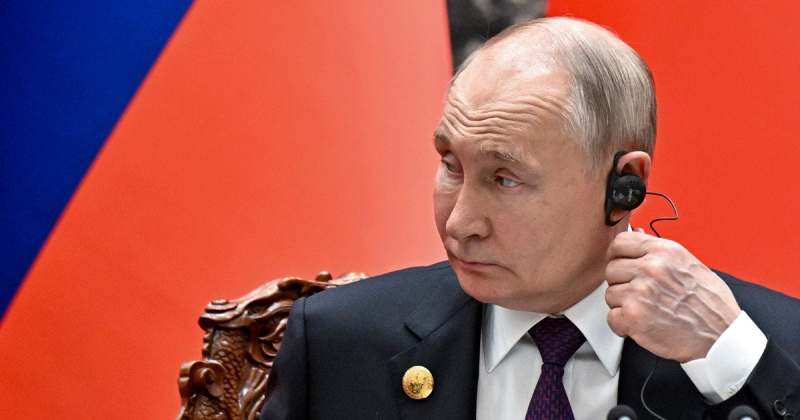Russian scientists are falling under suspicion of spying for China en masse.

Despite Russian President Vladimir Putin's public statements about “friendship without borders” with China, mistrust of Beijing is growing among Russian intelligence agencies.
Welt reports this.
Russian intelligence is increasingly recording cases of espionage by Chinese agents, particularly in sensitive areas of defense and science.
China is an ally, but not for everyone
After its full-scale invasion of Ukraine, Russia has become effectively economically dependent on China. Xi Jinping’s autocracy has become the main buyer of Russian energy resources, as well as a source of technology that Russia has lost due to Western sanctions. China also helps Moscow circumvent sanctions.
Against this backdrop, Russian President Vladimir Putin has demonstratively maintained warm relations with Xi Jinping, calling him a “dear friend” and inviting him to state celebrations, including the parade on Red Square in May 2025.
However, as the publication claims, the Russian special services do not have such a passion. A leak of a secret report obtained by The New York Times indicates that the FSB has launched a counterintelligence program codenamed “Entente-4,” aimed specifically at China.
Particular interest in drones and defense technologies
The report indicates that Chinese spies are particularly interested in Russian developments in the field of drone production, as well as defense systems against Western weapons. Potential sources of leaks are Russian scientists, government officials and representatives of the military-industrial complex.
Although the Kremlin officially downplays the scale of Chinese espionage, the facts speak for themselves. According to the Russian newspaper Kommersant, from 1997 to 2019, at least 14 people were convicted in Russia of spying for China. These cases involved, in particular, the transmission of data on intercontinental missiles, space probes, or spacecraft defense systems.
Often in such cases, doubts arise about the validity of the accusations. The FSB controls all international academic ties in Russia, and subjects scientists with access to classified information to strict supervision – up to and including being accompanied by agents to conferences and mandatory censorship of publications.
Critics, including Andrei Soldatov and Irina Boragan, well-known experts in exile on Russian special services, believe that many of the cases may be fabricated to create the appearance of “successes” by the special services.
“Treason” in exchange for statistics
A telling case is that of physicist Dmitry Kolker from Novosibirsk, who was detained in the summer of 2022 on suspicion of treason — allegedly for transmitting classified information during lectures in China. At the time of his arrest, he had stage 4 pancreatic cancer. Despite the protests of doctors, he was transferred to a Moscow pretrial detention center, where he died four days later.
Another example is the case of Anton Klimkin, a scientist from Tomsk. He was researching lidar (laser scanning) technology as part of a joint Russian-Chinese project. In June 2024, he was sentenced to 2.5 years in prison for “secret cooperation with a foreign organization.” His Chinese graduate student was also reportedly initially detained, but later quietly left Russia.
Unofficial message to the Kremlin
From 2022 to 2024, five new cases against “Chinese spies” were recorded in Siberia alone, in cities such as Novosibirsk and Tomsk. Although the Kremlin avoids directly criticizing Beijing, these cases could be a signal – not only a warning, but also a hint that the “historical partnership” with China has its price and risks.
Historical mistrust between Moscow and Beijing has deep roots dating back to the 1960s, when disputes between the USSR and China nearly led to war. That is why the current “alliance” is viewed with suspicion by many in Russia’s power elite.
Silence of the FSB
There have been no new public cases against Chinese spies since the Klimkin case. This may mean that the FSB failed to record new cases – or the Kremlin decided not to make them public so as not to spoil the “picture” of the strategic partnership with China.
Let us recall that earlier we wrote that the Russian FSB considers China a serious threat, despite Putin's statements about friendship. According to The New York Times, in secret documents, China is called an enemy that is trying to recruit Russian officials and spy on military technologies, preparing to lay claim to Russian territory.

